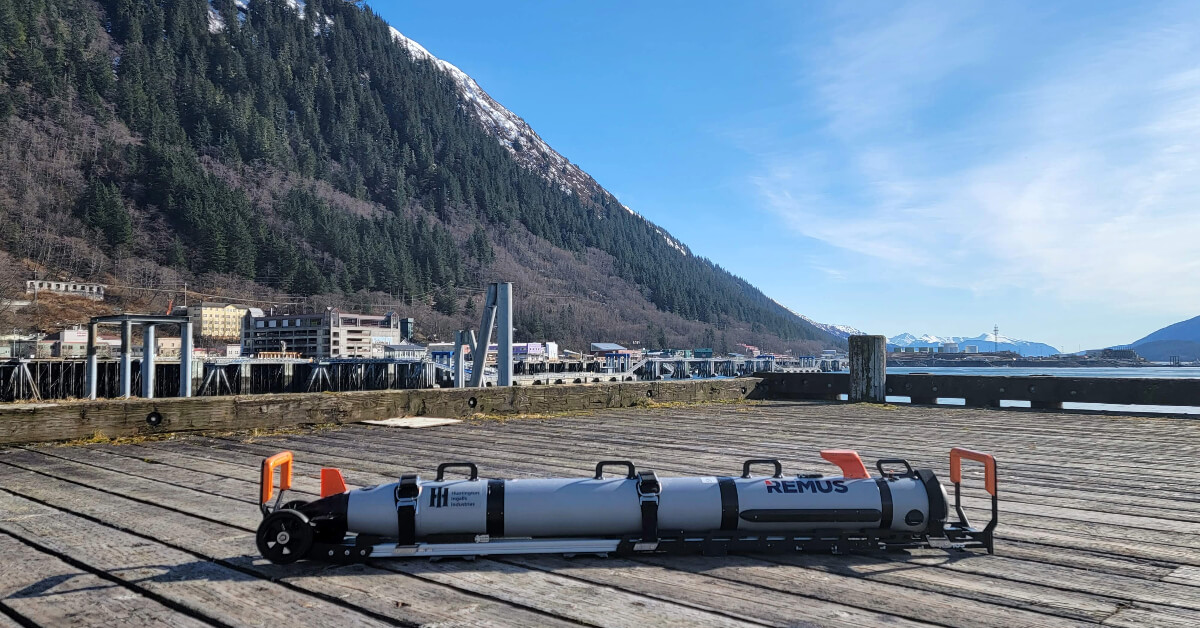WASHINGTON, D.C. - November 6, 2023 - Unmanned Underwater Vehicles (UUVs) are the unheralded champions in maritime defense; poised to bring about a revolution in the scale of presence and capability delivery in the subsea and seabed domain. These UUVs feature autonomy, state-of-the-art sensors, class leading endurance, advanced cyber security, and are at the forefront in combating the danger posed by subsea explosives. They will protect explosive ordnance disposal operators and critical international shipping lanes that are becoming increasingly disputed.
PEO Unmanned and Small Combatants of the U.S. Navy is leading maritime advancements with the Lionfish program, an initiative to counter the continued threat of underwater mines. Its Expeditionary Mission program office (PMS 408), the Defense Innovation Unit (DIU), and the Naval Information Warfare Center-Pacific (NIWC-PAC) worked together to replace the Mk 18 Mod 1 Unmanned Underwater Vehicle (UUV) with an advanced, modular system that is effective for mine countermeasure (MCM) operations. The primary objective of the Lionfish program is to preserve free access to the world’s maritime routes in order to safeguard them from the threat of underwater explosive devices and adversary underwater infrastructure. Due to its modular, open systems architecture, Lionfish is already being adapted for a wider range of undersea missions.

The Huntington Ingalls Industries (HII) REMUS 300.
Capitalizing on DIU’s Commercial Solutions Opening (CSO), PMS 408 began a journey to assess a broad range of UUV technology solutions for open systems architecture, software, and crafted hardware that allows easier updates in the future than its predecessor. This competitive process started with more than 30 proposals in 2019. Through a live demonstration of UUV capability, sailor end users provided hands-on, tactically relevant feedback to the competitive selection of two performers that were awarded Prototype agreements.
Among these solutions, the Huntington Ingalls Industries (HII) REMUS 300 emerged as the UUV that had the capacity to meet the Navy’s needs and deliver on underwater defense through sophisticated capability. In September of 2023, HII was awarded a FAR-based contract by the U.S. Navy in the amount of $19 million with a ceiling of $347 million to begin shipments of the REMUS 300 to PMS 408 by September 2024, with ongoing technology advancements and deliveries through 2028. This award represents the Navy’s first transition of a prototype Other Transaction into a FAR-based production contract, effectively pathfinding this accelerated acquisition tool for the Navy.
“DIU has ensured that the Navy was able to develop the first ever cyber-secure UUV that also encompasses next generation modularity and sensors, providing a stepwise capability improvement in the underwater robotics and AI domain,” says Captain Jonathan Haase, Program Manager, Expeditionary Missions, PMS 408.
The growing danger posed by subsurface mines casts a shadow over major ports and vital sea routes, intensifying the need for a solution that is both capable and cost-effective. As an AI-powered expeditionary UUV, the Lionfish production contract marks an important milestone, and affords the Navy and Marine Corps new levels of technology, endurance, and scalability to meet pacing threats across the globe. The success of the DIU-NAVSEA Small Unmanned Underwater Vehicle (SUUV) project is a testament to the hard work and ongoing dedication of multiple organizations to strengthen our seas, and provide a safer path for all those who cross its perilous waters.
